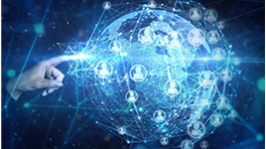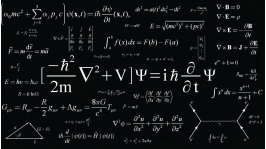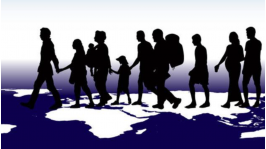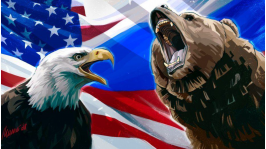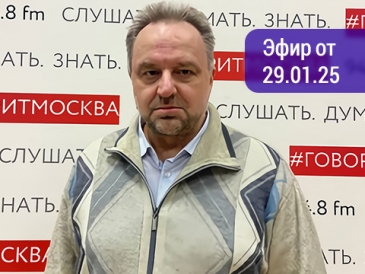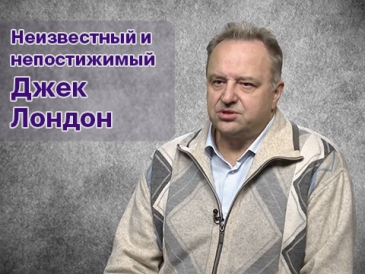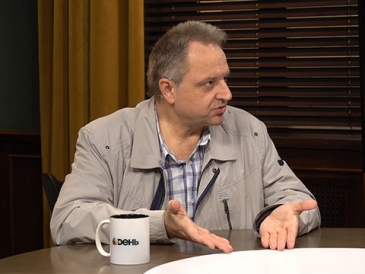There are many regulatory forks in state science and technology policy, which necessitates searching for the optimal combination of opposites. We mean alternatives such as, for example, priorities and non–priorities, directive and initiative research, and basic and competitive funding. Among them is the task of finding the optimal level of openness of Russian science and of its integration into world science. In practice, the balance is implemented through a variety of tools, including a system of restrictions and prohibitions of both open and covert nature. Note that this article will consider the civil sector of science, which is not burdened with a special regime that applies to the R&D sector in the field of defense and state security.
From the beginning of the 1990s until the beginning of 2022, the state scientific and technological policy did not prevent and even contributed to the popularization of foreign science in the Russian Federation, the immersion of domestic civil science into the global research space up to dissolution in it, without considering the preservation of sovereignty. At the same time, interest from abroad in the science of the former Soviet Union and its results, which was characteristic of the 1990s, gradually decreased markedly. Losing the ideological initiative, Russian science entered the internationalized research world as an ordinary member.
At the official level, the brain drain is regarded as a natural process without significant opposition to it. For decades, foreign foundations have been working freely in our country, recruiting and luring talented scientific youth. Simultaneously, our science switched to the use of predominantly foreign scientific equipment, consumables, and foreign resources of scientific and technical information. In the system for evaluating the effectiveness of scientific activity, foreign scientific journals, publications in which are rated higher than in domestic ones, as well as foreign ratings for Russian universities, were brought to the fore. Several generations of Russian researchers have been brought up on this ideology.
No radical changes were expected in the strategic course supporting the maximum and disinterested openness of Russian science. However, the special military operation of the Russian Federation in Ukraine, which began on February 24, 2022, forced us to reconsider the approach adopted within the framework of the state’s scientific and technical policy, and scientific cosmopolitanism was suddenly called into question. Unfriendly foreign states launched the process of “cancelling” Russian science, including the suspension of the supply of scientific equipment and consumables, the disconnection of Russian science from a number of information resources and software, and the displacement of Russian researchers from the foreign information space. The Russian regulator promptly responded to these actions by imposing a moratorium on accounting for publication activity in the Web of Science and Scopus systems, first until the end of 2022 and then in 2023. Work began on the formation of a new domestic list of scientific publications, divided into the prestige and scientific recognition segments (analogues of quartiles).
Thus, the long–term vector of the state scientific and technical policy was disavowed. However, no new course adequate to the situation has been proposed thus far, while Russian researchers, accustomed to interacting with Western science, are left face to face with its unfriendly incarnation.
This article analyzes the opinions of scientists regarding the openness of Russian science based on the results of the 2021 survey in comparison with the opinions expressed in May 2022.
MODERN PRACTICE OF STUDYING THE OPINIONS OF THE SCIENTIFIC COMMUNITY IN RUSSIA AND ABROAD
The development of interactive means of communication has led to an increase in the popularity of mass sociological studies of the opinions of scientists. The criterion for the mass nature of such surveys, as a rule, is the threshold of 1000 respondents, which usually ensures that the sample is representative relative to the general population. Note that surveys are often not limited to respondents from one country, sometimes acquiring a global scale. The thematic diversity of such studies includes not only issues related to the professional activities of scientists but extends to many social, political, and other problems. International organizations, professional associations, scientific foundations, authorities, major portals, scientific publications, and, of course, individual research teams are the customers and executors of such studies.
One of the most significant surveys in terms of coverage is the International Survey of Science (ISSA), conducted under the auspices of the Organization for Economic Cooperation and Development (OECD). Three waves of surveys have already been conducted every three years, as well as an express survey on the impact of the coronavirus pandemic on global science. The first of the regular surveys was devoted to publication procedures (peer review, open access, etc.) and was based on a sample of authors of articles in journals indexed on the Scopus platform [1]. As a result, about 5000 questionnaires were received. The second round of the survey, which was mainly related to the use of ICT in research activities, made it possible to aggregate the opinions of about 12 000 respondents [2]. The third survey, which took place in 2021–2022, relied on a fundamentally different way of sampling respondents: it was conducted in an open mode based on the Open Researcher and Contributor ID (ORCID), which most authors of scientific publications have [3].
Perhaps the most popular crosscutting topic for mass surveys of scientists is the assessment of their material well–being and overall satisfaction with their chosen career. Such studies vary greatly depending on the size and method of sampling and the geographical coverage of respondents. Thus, the Nature publishing group collected the opinions of more than 4000 scientists from North America and Europe based on an open survey [4]. The American Association for the Advancement of Science involved more than 3500 of its members, representing the age and disciplinary composition [5]. Another sampling option is used in the framework of the New Scientist Jobs STEM Survey project, where survey participants are registered users of the job search portal in the scientific field [6]. Importantly, many of these surveys are regular (usually annual), which makes it possible to measure the dynamics of wages in science and track the level of attractiveness of a scientist’s career.
An equally important subject for sociologists over the years has been the migration activity of scientific personnel. The GlobSci Survey project, which has surveyed more than 17000 scientists from 16 countries, is truly significant in this area [7]. The authors of the study paid primary attention to the identification of causal factors and obstacles in the mobility of scientists, features of the formation of international collaborations, and action mechanisms of circulation migration. The sample of respondents was formed based on the metadata of publications in journals indexed in Web of Science. An analogue on a smaller scale is the trans–European survey of more than 2200 young scientists [8]. The questionnaire mainly consists of questions about the quality of PhD training in European universities, as well as about the opportunities for and obstacles to the mobility of scientific personnel.
Recently, the focus of research has increasingly been on the modes of access to scientific publications, in particular the transition of scientific journals to the open access model. Among others, Norwegian scientists (about 1500 respondents) [9], authors of articles in journals belonging to the publishing group “Taylor & Francis” (almost 3000 respondents) [10], as well as authors of scientific monographs published in the world’s major publishing houses (2500 respondents) [11] expressed their opinion on these problems. Another main direction of mass sociological research is the study of the process of integrating the results of scientific research into the life of society (public engagement). In particular, more than 1500 researchers from Britain indicated the most used channels to popularize acquired knowledge [12], and more than 6000 scientists from the United States assessed the importance of scientific communications to accelerate career growth [ 13]. It is noteworthy that, in the second of these surveys, the initial sample was formed by parsing the e–mails of researchers and teachers from the websites of American universities.
Scientists have participated in many large–scale surveys on global problems of humankind and political issues. In particular, assessments of the environmental situation in the world and the scale of the influence of the anthropogenic factor on natural processes appear again and again based on the opinions of a wide range of scholars [14, 15]. The Nature publishing group examined the position of about 2000 scientists regarding Brexit [16]. It turned out that the attitude of the scientific community contrasts strongly with the opinion of the general public: only 44% of the British were in favor of maintaining EU membership, while among scientists this share reached 83%.
In Russia, mass sociological surveys of scientists have also become a common practice. Thus, since 2010, the Higher School of Economics has been implementing the project Monitoring Highly Qualified Scientific Personnel, one of the tasks of which is to conduct regular surveys of about 2000 Candidates and Doctor of Sciences [17]. The research topics include the following: obtaining additional education by scientists, international mobility, employment models (full–time, part–time), digital skills, level of English language proficiency, etc. Unlike numerous foreign counterparts, HSE University uses fairly concise questionnaires that cover only one specific topic. The Russian Foundation for Basic Research also conducts similar studies: the core of the sample are users of its integrated information and analytical system (KIAS RFBR). For example, 12000 people participated in a survey to determine the preferences of Russian scientists between the Scopus and Web of Science databases [18]. A sample of approximately the same size was used to study the demand for various full–text information resources (electronic libraries) [19]. The issues of scientific policy and the role of the Russian Academy of Sciences in this area were reflected in a study including a little more than 1000 RAS academicians, corresponding members, and professors [20]. The key result was the discovery of a strong interest of the academic community in strengthening cooperation with government agencies to solve national problems and tasks.
We can state that mass sociological studies of scientists’ opinions regarding scientific policy and scientific everyday life are in demand both in Russia and abroad. Most surveys are conducted using electronic resources with notification of respondents by e–mail or notification on the portals where the respondents are registered. Sampling, as a rule, is carried out on the basis of e–mail addresses recorded in the metadata of publications or the membership of respondents in organizations and public associations. As for the goals and practical benefits of such work, the results of surveys form the foundation for assessing the scientific climate in a country and the ease of conducting research activities. In addition, through surveys, government regulators get feedback from the scientific community on a wide range of issues.
FEATURES OF THE RESEARCH AND PARAMETERS OF THE SAMPLE OF RESPONDENTS
Following the logic of a number of foreign studies, a bibliometric approach was used to form a sample of respondents. At the first stage, a database of scientific publications by Russian authors was created (at least one member of the team of authors had an affiliation with Russian organizations). The source of the metadata was the Web of Science database, including all Web of Science Core Collection indices, as well as the Russian Science Citation Index. Compared to Scopus, this configuration of Web of Science provides a relatively larger coverage of publications by Russian authors, while it is possible to cut off a significant proportion of domestic papers published in journals with a dubious reputation [21]. At the second stage of sample generation, the e–mail addresses specified by Russian authors in respective contact forms were extracted from the metadata of publications.
Two surveys were conducted: in April 2021 (Science Policy of Russia 2021; hereinafter, NAPOR–21) [22]) and May 2022 (Science Policy of Russia 2022; hereinafter, NAPOR–22) [23]. Note that the NAPOR–21 program included the task of determining the attitude of the scientific community to strategic vectors of science development such as the entry of Russian universities into the top hundred universities of international rankings, as well as an emphasis on scientometric indicators in assessing the effectiveness of scientific activity, on foreign publication databases. The task of the NAPOR–22 study, in particular, was to assess the impact of the sanctions of foreign states on Russian science, as well as the expected effectiveness of the announced measures of the countersanctions policy of the Russian Federation.
In both studies, the sample of respondents was formed on the basis of publications issued during the six years preceding the survey. That is, within the framework of NAPOR–21, the works of 2015–2019 were considered, while within NAPOR–22, those of 2016–2020. The survey was conducted by sending questionnaires to e–mail addresses. Open and closed questions with single or multiple choice were used [1], as well as in the form of a Likert scale. In addition, respondents were asked to leave detailed comments regarding science and technology policy in Russia and other issues. As a result of the mailing campaign, more than 7200 people agreed to participate in the study within the framework of NAPOR–21 and over 4100 people during NAPOR–22.
To assess the representativeness of the samples, the disciplinary, age, and geographic profiles of the respondents were compared with Rosstat [Federal State Statistics Service of Russia–Tr.] information on similar characteristics of researchers in 2020 (latest available data). The age structure of the survey participants turned out to be quite close to the general population (Table 1).
Table 1. Distribution of respondents by age groups, %
|
Age group |
NAPOR–21 |
NAPOR–22 |
Rosstat |
|
up to 29 years (inclusive) |
10 |
7 |
16 |
|
30–39 years |
25 |
26 |
28 |
|
40–49 years |
18 |
20 |
17 |
|
50–59 years |
16 |
16 |
14 |
|
60–69 years |
18 |
19 |
15 |
|
70 years and older |
13 |
12 |
9 |
To assess the representativeness of the samples, the disciplinary, age, and geographic profiles of the respondents were compared with Rosstat [Federal State Statistics Service of Russia–Tr.] information on similar characteristics of researchers in 2020 (latest available data). The age structure of the survey participants turned out to be quite close to the general population (Table 1).
In the disciplinary context, the sample of respondents turned out to be significantly biased towards natural sciences (Table 2), which is due to the initial structure of most publication databases. Respondents were significantly more involved in basic research compared to applied research and R&D.
Table 2. Distribution of respondents by fields of science, %
|
Field of science |
NAPOR–21 |
NAPOR–22 |
Rosstat |
|
Natural sciences |
55 |
59 |
23 |
|
Engineering sciences |
17 |
15 |
60 |
|
Medical sciences |
6 |
5 |
4 |
|
Agricultural sciences |
1 |
2 |
3 |
|
Social sciences |
13 |
12 |
6 |
|
The humanities |
8 |
8 |
4 |
Geographically, a fairly high correspondence of both samples to the general population was achieved. Thus, approximately three out of ten respondents represented the city of Moscow; every eighth, the city of St. Petersburg; and every ninth, Moscow oblast. Then, in descending order, there were scientists from Novosibirsk, Tomsk, and Sverdlovsk oblasts. In addition, the samples are characterized by a scientific qualification of the respondents: the proportion of participants with a scientific degree was 85% in NAPOR–21 and exceeded 87% in NAPOR–22. At least 50 RAS members took part in each of the surveys. Approximately four out of five respondents stated that they had experience in managing the implementation of scientific research (under agreements (contracts), state assignments in the field of science, grants from scientific foundations, etc.).
In NAPOR–21, the university sector and the sector of scientific organizations were equally represented (46% of respondents each). NAPOR–22 attracted the attention of employees of research institutes to a greater extent (52%), and to a somewhat lesser extent of employees of universities (41%). Finally, it is important to note the participation of the Russian scientific diaspora in each of the surveys: about 95% of respondents stated that they permanently work in Russia or mainly in Russia, while the rest of the respondents indicated employment abroad or mainly abroad, or in Russia and abroad approximately equally.
OPENNESS OF RUSSIAN SCIENCE
The thematic coverage of both waves of the survey turned out to be very wide, including issues such as the brain drain, evaluation of the effectiveness of state scientific policy measures, attitudes towards measuring publication activity, etc. Although each of these topics is relevant, in the current conditions it is the problem of international scientific and technical cooperation that attracts special attention. Some formal and informal international sanctions are aimed, in fact, at isolating Russian science, including freezing cooperation on international research projects [24]; termination of supplies of research equipment, components for it, and reagents [25, 26]; shutdown of international databases of scientific information [27]; boycott of publications by Russian authors [28]. At the same time, there is an opinion in the scientific community that these restrictive measures can lead to some positive consequences, helping to get rid of the excessive integration of Russian science into world science.
Against this background, there is a heated debate about the adequacy and expediency of accounting for the contribution of Russian science to world science, meaning the number of publications in editions indexed by the international databases Web of Science and Scopus [29, 30]. In the NAPOR–21 study, respondents were asked, “Do you think that the Russian Federation should abandon the primary focus on foreign publication databases to assess publication activity (Web of Science, Scopus, etc.)?” (Table 3). It turned out that there are polar opinions regarding the use of foreign tools to assess the effectiveness of Russian science: 41.0% are against it, and 52.7% are in favor. Foreign databases found the greatest support among representatives of the natural and medical sciences; specialists in the humanities and in agricultural sciences consider it necessary to abandon them (2/3 of the answers).
Table 3. Distribution of answers to the question about the use of foreign scientometric databases in the Russian Federation, %
|
Scientific areas |
Should be abandoned |
Should be preserved |
No answer |
|
Natural sciences |
32.2 |
61.6 |
6.2 |
|
Engineering sciences |
47.8 |
46.4 |
5.8 |
|
Medical sciences |
30.8 |
64.8 |
4.4 |
|
Agricultural sciences |
65.2 |
27.4 |
7.4 |
|
Social sciences |
55.2 |
38.3 |
6.5 |
|
The humanities |
63.8 |
28.3 |
7.9 |
|
All respondents |
41.0 |
52.7 |
6.4 |
Opponents of measuring scientific performance by Web of Science and Scopus consider it incorrect to put forward as a goal the achievement of a certain share in these databases (36.7% of respondents); in their opinion, foreign databases impose their own rules of the game on Russian scientists and meaningfully try to control them (28.2%); 22.5% consider foreign databases as international business projects that have nothing to do with science. Supporters of the use of international publication databases point to their importance as a benchmark that makes one strive for the world scientific level (87.2%).
Another sensitive topic for the Russian scientific community was the issue of the entry of Russian universities into foreign university rankings [31, 32]. In addition to publishing activity, the place in the ratings is determined on the basis of expert polls, as well as the share of foreign teachers and students, the number of graduates and employees awarded the Nobel Prize, etc. Usually, the problem of the reliability of the ratings is discussed along with arguments about the effectiveness of the 5–TOP–100 program. The first survey coincided with the completion of this program, so the respondents were asked to assess the outcome of the project (from complete failure to unquestionable success) and at the same time comment on the overall objectivity of the ratings (the question was, “Do you think the task to ensure the entry of Russian higher education establishments into foreign rankings of world universities (ARWU, THE, QS, etc.) should be abandoned?”).
Thus, almost 60% of respondents supported the desire to increase the presence of Russian universities in foreign rankings; it is expected that among those who positively assessed the results of the 5–TOP–100 project, there were more supporters of the ratings (Table 4). However, even the majority of those who believe that the project failed do not think that it should be abandoned. The main arguments here are the need for international recognition of universities through participation in rankings. Opponents of foreign university rankings in almost half of the cases referred to the fact that the pursuit of rankings is an incorrect goal setting; 19.7% of respondents complained about the high cost of the rating race, although even its successful result does not provide any dividends for Russian universities. Interestingly, 14.5% of the survey participants perceive foreign ratings as political projects of developer countries.
Table 4. Distribution of answers to the question about the future of the rating–oriented development strategy of Russian universities, %
|
Possible answer |
All respondents |
Respondents who answered the question about the results of the 5–TOP–100 project |
|
|
unequivocal success and rather a success |
unequivocal failure and rather a failure |
||
|
Should be abandoned |
29.4 |
15.1 |
35.7 |
|
Should be preserved |
59.1 |
79.2 |
58.3 |
|
No answer |
11.5 |
5.7 |
6.0 |
|
TOTAL |
100.0 |
100.0 |
100.0 |
Therefore, in 2021, the scientific community of Russia turned out to be split concerning the orientation towards the integration of domestic science into world science. At least half of the respondents were convinced of the justification and adequacy of the use of foreign templates for assessing scientific activity in our country.
The 2022 survey coincided with the announcement of the fifth round of anti–Russian sanctions. Many of the measures aimed at isolating Russian science had already been implemented by that time. Therefore, the participants in the NAPOR–22 study were guided in their answers not only by the expected effects from the actions of unfriendly countries but also reacted to the ensuing consequences of prohibitive measures. Two major directions of the sanctions policy against Russian science can be distinguished: exclusion from the Western–oriented international scientific space and restriction (termination) of the use of foreign assets in scientific activities. The data in Table 5 testify to the painful nature of the sanctions for Russian science and, indirectly, to the excessive openness of Russian science in the previous period.
Table 5. The impact of sanctions on the implementation of scientific activities in the Russian Federation, %
|
Expected consequences of sanctions |
Makes it impossible to continue scientific activity |
Significantly complicates scientific activity |
Slightly complicates scientific activity |
Does not interfere with research |
No answer |
Other |
|
Termination of joint scientific projects with foreign universities/scientific organizations |
8.7 |
35.4 |
22.7 |
23.7 |
7.3 |
2.2 |
|
Biased review of publications of Russian authors in foreign editions |
4.7 |
32.1 |
19.0 |
20.9 |
18.3 |
5.0 |
|
Refusal to Russian researchers to participate in scientific research at foreign megascience facilities |
8.7 |
25.0 |
11.1 |
24.9 |
26.9 |
3.4 |
|
Refusal to Russian researchers to participate in scientific conferences abroad |
6.5 |
32.2 |
24.1 |
22.0 |
11.8 |
3.4 |
|
Disconnection from foreign electronic resources of scientific and technical information |
12.5 |
41.9 |
20.1 |
15.6 |
7.3 |
2.6 |
|
Disconnection from specialized foreign software |
11.2 |
34.9 |
21.4 |
19.4 |
10.4 |
2.7 |
|
Termination of supplies of foreign scientific equipment, including due to the impossibility of transferring payment |
19.6 |
41.3 |
11.9 |
14.4 |
10.5 |
2.3 |
|
Termination of supplies of foreign consumables |
18.2 |
38.2 |
13.8 |
16.3 |
11.1 |
2.4 |
Measures to isolate Russian science, including the termination of scientific projects, biased review of publications, and refusal to invite Russian scientists to participate in scientific conferences, significantly complicate the scientific activities of about a third of the respondents. However, sanctions aimed at restricting access to foreign information systems are perceived as more painful. The refusal to allow Russian researchers to use foreign megascience facilities can be overcome, while, according to half of the respondents, the disconnection from foreign information systems and software and freezing of the supply of equipment and consumables are fraught with serious difficulties. Specialists in medical, natural, and engineering sciences are especially vulnerable: 22–25% of the respondents fear that they will have to suspend research, and another 45% believe that their work will be very complicated.
Table 6. Distribution of answers to the question about the expected effectiveness of anti–sanction measures, %
|
Anti-sanction measures |
Expected high |
Expected rather high |
Expected rather low |
Expected low |
Zero expected |
No answer |
|
Moratorium until December 31, 2022, on the requirements for the publication activity of Russian researchers in foreign journals indexed in the Web of Science and Scopus databases, as well as on participation in foreign scientific conferences |
10.4 |
20.6 |
17.7 |
13.3 |
26.9 |
11.0 |
|
New approaches to assessing the effectiveness of scientific activities |
10.3 |
19.1 |
16.6 |
15.0 |
23.3 |
15.6 |
|
Simplification of public procurement procedures for scientific equipment and consumables |
16.1 |
30.6 |
12.8 |
9.8 |
11.8 |
18.9 |
|
Federal project Development of Domestic Scientific Instrumentation (by 2024, more than 42 new scientific instruments manufactured in the Russian Federation) |
10.8 |
22.1 |
15.3 |
12.2 |
15.9 |
23.8 |
|
Creation of new scientific laboratories for young scientists |
11.2 |
23.8 |
20.5 |
13.7 |
17.5 |
13.2 |
In 2022, a number of federal measures were announced [2] and partially implemented to counter sanctions of unfriendly states (Table 6). According to the researchers, of the countersanction measures proposed for evaluation, the most effective is the simplification of the public procurement procedure for scientific equipment and consumables [3]; however, the proportion of respondents who are optimistic in this regard barely reaches half (46.7%). The remaining four measures were approved by 29–35%. The greatest skepticism is caused by the announcement of a moratorium (not cancellation) regarding the requirement on publishing in foreign journals indexed in foreign databases, from which the Russian Federation is already disconnected, [4] as well as another update of the approach to assessing the effectiveness of scientific activities. By and large, this is a kind of mirror image of the results of the 2021 survey, when respondents supported assessing publication activity based on Web of Science and Scopus.
In our opinion, it is extremely important to understand what scientists think about the termination or reduction of international cooperation in science and technology with unfriendly countries. As it turned out, approximately three–quarters of the respondents consider it acceptable for Russian researchers and their teams to start (continue) scientific interaction with colleagues and research centers from such countries in the field of civil science; only about 10% of the respondents insist on the need to stop contacts. This result can be interpreted in two ways. On the one hand, the unconditional admissibility of cooperation was supported by respondents who considered science to be a cosmopolitan institution outside politics, outside national borders. The admissibility of cooperation, but under certain conditions, was advocated by researchers who put in the first place the usefulness of interaction from the point of view of national interests (not to the detriment of their country). On the other hand, the thirty–year–long period of cosmopolitanism in Russian science has led to a violation of identification along the “friend or foe” line and it cannot be restored overnight even during the period of hostilities, when the forces and means of unfriendly states are used against the Russian Federation.
As for forecasts regarding the restoration of ties between Russian science and foreign science, approximately 25% of the survey participants are convinced that cooperation will be restored in one to three or four to seven years. Slightly less than 18% predict an interval of ten years, and 10.5% of the most pessimistic respondents believe that it will not be possible to return the interaction to the previous level in the foreseeable future.
* * *
The results of the 2021 and 2022 studies, including numerous comments and answers to open questions, allow us to draw the following conclusions.
First. By 2021, the Russian scientific community had developed a fairly tolerant attitude towards the evaluation of scientific activity according to the templates of world science (measuring publication activity using international databases, tracking positions in foreign university rankings). More than half of the respondents (among young scientists, this proportion is even higher) consider the integration vector as a true guide for the development of Russian science. In addition, the comments show a desire to establish clear rules of the game (criteria for appointment and certification, receiving grants, determining wages and allowances) based on measuring publication activity. The reverse side of this coin is distrust of the examination system.
Second. Even in the radically changed situation in connection with the special military operation of the Russian Federation in Ukraine, a significant part of the researchers retained a loyal attitude towards foreign science, as evidenced by the willingness of the overwhelming majority of respondents to start or continue scientific cooperation with colleagues from unfriendly states. Apparently, to restructure the perception of the surrounding world, more severe shocks of a personal nature are needed, or perhaps the established attitudes are no longer subject to change.
Third. The greatest current and expected damage to Russian science is caused by its deep dependence on imported equipment, consumables, and scientific and technical information. Despite efforts to ensure import substitution of scientific assets, the role of suppliers from unfriendly countries cannot be overestimated. Respondents paid attention to the possibility of solving the problems in “moderately honest ways,” which in the current conditions appear quite justified. To begin with, we mean the channels of “gray,” or parallel, imports for the purchase of instruments, spare parts for them, and reagents. A great help in this matter was the liberalization of the public procurement process for scientific and scientific–educational institutions. The lack of access to publications in foreign editions is proposed to be filled using the Sci–Hub service, which, by the way, is still inaccessible from Russian IP addresses on some domains. In the long term, Russian scientists consider it necessary to search for alternative suppliers (from China, India, Iran, and some other countries), as well as to revive domestic instrumentation.
Fourth. Based on the comments of the survey participants, one gets the impression that they are deeply concerned about the future of Russian science. However, there is no reason to talk about panic or apathy. Much more often, Russian scientists express regret about the already imposed sanctions and future prohibitive measures; the “cancellation” of domestic civil science and the rupture of scientific ties in their eyes look like a short–sighted policy, like a kind of arbitrariness. A rather large cohort of respondents even expresses moderate optimism: in their opinion, the sanctions pressure has stimulated a surge of patriotic and anti–Western sentiments, and on this basis the political will is being formed, which will allow changing the entire system of managing scientific activities. We mean the rejection of “show” accounting (counting the number of publications, citations, patents, etc.) in favor of a meaningful assessment of the results of scientific work, as well as priority orientation to the needs and requirements of the economy and society and not to compliance with foreign canons.
Fifth. Thus far, no adequate goal setting and vector for the development of Russian civil science that would make it possible to abandon the publication race and international ratings have been proposed. Thus, at the ideological level, no alternative has been developed for the complete openness of Russian science. It is necessary to reboot promptly the science management system to determine the optimal measure of its openness under the new conditions.
REFERENCES
1. B. Boselli and F. Galindo–Rueda, “Drivers and implications of scientific open access publishing: Findings from a pilot OECD international survey of scientific authors,” OECD Science, Technology and Industry Policy Papers, No. 33 (2016 https://doi.org/10.1787/5jlr2z70k0bx–en
2. M. Bello and F. Galindo–Rueda, “The 2018 OECD International Survey of Scientific Authors,” OECD Science, Technology and Industry Working Papers, No. 2020/04 (2020). https://doi.org/10.1787/18d3bf19–en
3. ISSA 2021: Science in society in times of crisis. https://www.oecd.org/science/survey–of–scientific–authors.htm
4. “Survey reveals highs and lows of a life in science,” Nature 562 (459) (2018).
5. C. Funk, L. Rainie, and D. Page, Public and Scientists’ Views on Science and Society (Pew Research Center, 2015). https://www.pewresearch.org/internet/wp–con–tent/uploads/sites/9/2015/01/PI_ScienceandSociety_ Report_012915.pdf
6. 2020 STEM Survey report. https://jobs.newscien–tist.com/en–gb/article/2020–stem–survey–report–/
7. G. Scellato, C. Franzoni, and P. Stephan, “Migrant scientists and international networks,” Research Policy 44 (1), 108–120 (2015).
8. D. Meyer, “Opinion poll: Young scientists’ survey gets the dirt on life at the coal face,” ELSO Gazette, No. 13 (2003). https://www.researchgate.net/publica–tion/272510911_Opinion_poll_young_scientists’_sur–vey_gets_the_dirt_on_life_at_the_coal_face
9. Sharing and archiving of publicly funded research data: Report to the Research Council of Norway (2014). http://docplayer.net/1769604–11–04–14–sharing–and–archiving–of–publicly–funded–research–data–report–to–the–research–council–of–norway.html
10. Taylor & Francis Researcher Survey (2019). https://au–thorservices.taylorandfrancis.com/wp–content/uploads/2019/10/Taylor–and–Francis–researcher–survey–2019.pdf
11. R. Pyne, C. Emery, M. Lucraft, and A. S. Pinck, The Future of Open Access Books: Findings from a Global Survey of Academic Book Authors (Univ. Nebraska, Lincoln, 2019). https://digitalcommons.unl.edu/cgi/view–content.cgi?article=1114&context=scholcom
12. M.W. Bauer and P. Jensen, “The mobilization of scientists for public engagement,” Public Understanding of Science 20 (1), 3–11 (2011).
13. K.M. Rose, E.M. Markowitz, and D. Brossard, “Scientists’ incentives and attitudes toward public communication,” Proc. Nat. Acad. Sci. 117 (3), 1274–1276 (2020).
14. K.F. Myers, P.T. Doran, J. Cook, et al., “Consensus revisited: Quantifying scientific agreement on climate change and climate expertise among Earth scientists 10 years later,” Environ. Res. Lett. 16 (10), 104030 (2021).
15. B. Verheggen, B. Strengers, J. Cook, et al., “Scientists’ views about attribution of global warming,” Environ. Sci. Technol. 48 (16), 8963–8971 (2014).
16. D. Cressey, “Scientists say ‘no’ to UK exit from Europe in Nature poll,” Nature 531 (7596), 559–559 (2016).
17. Monitoring of the labor market for highly qualified R&D personnel. https://www.hse.ru/en/monitor–ing/mnk
18. A.V. Lutai and E.E. Lyubushko, The choice of Russian researchers between Scopus and Web of Science: RFBR survey results. https://podpiska.rfbr.ru/stor–age/rfbr_survey1.html
19. A.V. Lutai and E.E. Lyubushko, Availability of access to full–text information resources: RFBR survey results. https://podpiska.rfbr.ru/news/361/
20. Results of a survey of academicians, corresponding members, and professors of the Russian Academy of Sciences, conducted on December 18–22, 2020. https://scientificrussia.ru/articles/rezultaty–oprosa–akademikov–chlenov–korrespondentov–i–professorov– ran–provedennogo–18–22–dekabrya–2020g
21. A.V. Yurevich and M. A. Yurevich, “Rubbish in science,” Herald Russ. Acad. Sci. 91 (4), 445–453 (2021).
22. A.B. Gusev and M.A. Yurevich, Russia’s Research Policy (Buki Vedi, Moscow, 2021) [in Russian]. http://www.spsl.nsc.ru/FullText/DOR/scipol2021cf.pdf
23. A.B. Gusev and M. A. Yurevich, Russia’s Research Policy 2022: Profession Is Not More Expensive Than the Motherland (Pero, Moscow, 2022) [in Russian].
24. J. Holdren, N. Fedoroff, N. Lane, et al., “Let’s not abandon Russian scientists,” Science 376 (6590), 256– 257 (2022).
25. P. Gritsenko, “Cell therapy left without technology,” Kommersant”, Mar. 31 (2022). https://www.kommer–sant.ru/doc/5283357
26. N. Vedeneeva, “‘Disinvitation’ of Russian science: How Western sanctions hit scientists,” Moskovskii Komsomolets, Mar. 3 (2022). https://www.mk.ru/sci–ence/2022/03/03/raspriglashenie–rossiyskoy–nauki–kak–sankcii–zapada–udarili–po–uchenym.html
27. M. Dul’neva, “Scientific database Web of Science became unavailable in Russia,” Forbes, May 4 (2022). https://www.forbes.ru/society/464725–naucnaa–baza–dannyh–web–of–science–stala–nedostupna–v–rossii
28. J. Brainard, “Few journals heed calls to boycott Russian papers,” Science, Mar. 10 (2022). https://www.sci–ence.org/content/article/few–journals–heed–calls–boy–cott–russian–papers#:~:text=At the mo–ment, the Journal,of the Universit y of Coimbra
29. A.I. Orlov, “Harm of focusing on Scopus and Web of Science databases,” Rossiya: Tendentsii i Perspektivy Razvitiya, No. 16–1, 835–840 (2021).
30. A.I. Ivanchik, “Peculiarities of evaluating researchers and research programs in the humanities,” Vestn. Ross. Akad. Nauk 88 (11) 985–991 (2018).
31. E.V. Balatsky and N.A. Ekimova, “The global university rankings: The problem of manipulation, J. New Econ. Assoc. No. 1, 126–146 (2012).
32. Ya.I. Kuz’minov, “Challenges and prospects for the development of universities in Russia,” Univ. Upr.: Prak. Anal., No. 4, 5–8 (2018).
[1] The respondent answers an open question in a free form; in the case of a closed question, the respondent is offered a set of alternatives, from which he/she chooses the one(s) corresponding to his/her opinion.
[2] The meeting of representatives of the Russian government and the scientific industry took place on April 8, 2022. A video of the event is at https://vk.com/wall–112292509_28793.
[3] Instruction of the Government of the Russian Federation no. 1316–r of May 26, 2022.
[4] Resolution of the Government of the Russian Federation no. 414 of March 19, 2022.
Translated by B. Alekseev
Official link to the article:
Gusev A.B., Yurevich M.A. Russian Science and the Outside World: Questionable Openness, Unquestionable Dependence // «Herald of the Russian Academy of Sciences», 2023, Vol. 93, No. 1, pp. 30–38.

